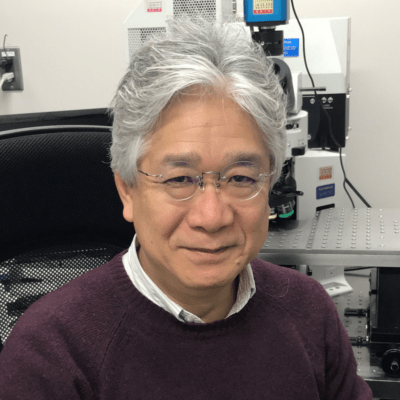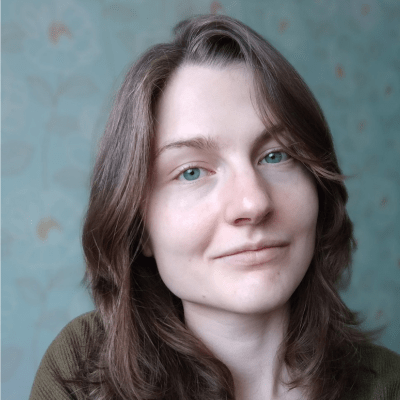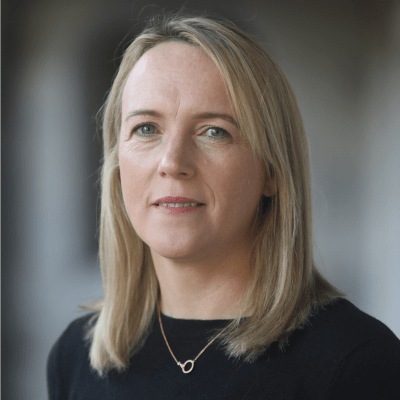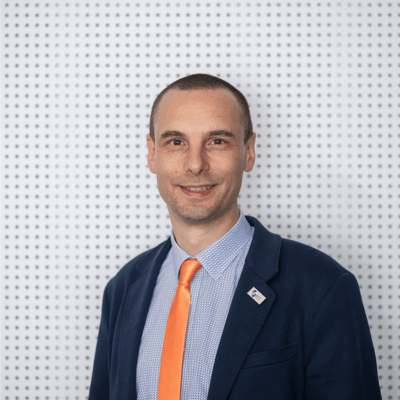
#EFIC2025 Plenary Sessions
Find below a preliminary list of #EFIC2025 Plenary Speakers.

Amanda Williams
Presenting on "Evidence-based analysis of healthy lifestyle interventions in chronic pain"
Amanda C de C Williams is Professor of clinical health psychology at University College London, and a clinical psychologist. She also works for the International Centre for Health and Human Rights, and is section editor for psychology for PAIN. In 1989 Amanda became a full-time clinician in a large pain management programme, responsible for evaluation of various outcomes, completing her PhD in 1996. She then moved increasingly into academia, joining University College London in 2004. For several years she also worked in a charity for torture survivors. Amanda’s particular interests are in evaluation of psychologically-based treatments by systematic review and meta-analyses; trustworthiness of data; developing evolutionary perspectives on pain in humans and in other animals; behavioural expression of pain and its interpretation by clinicians; pain from torture and its better recognition and treatment; and the use of responsive wearable technology to extend healthcare into patients’ own environments. She has presented work at national and international pain meetings. and written over 300 papers and chapters: publications can be found on https://profiles.ucl.ac.uk/4171-amanda-williams

Blair Smith
Presenting on "Phenotyping chronic pain in population studies, and measuring associations with mental health"
Blair H. Smith MD MEd FRCGP FFPMRCA FRCP FRSE is Professor of Population Health Science at the University of Dundee (Scotland). He is an academic General Practitioner, until recently also practising clinically as a Consultant in Pain Medicine, NHS Tayside. He is Clinical Co-director of Tayside Clinical Trials Unit. A co-investigator in research grants worth >€30M, and an author of ~300 peer-reviewed research papers, he established the Chronic Pain Research Group at Dundee and has been named by Clarivate as a ‘Highly Cited Researcher’ (top 1% globally in the field, top 0.1% overall). His research on chronic pain and neuropathic pain focuses on its epidemiology, genetics, primary care management and self-management. He is Co-Chair of the International Association for the Study of Pain's Global Alliance of Pain Patient Advocates (GAPPA) and a Past Chair of the Neuropathic Pain Special Interest Group (NeuPSIG). Blair served as the Scottish Government's National Lead Clinician for Chronic Pain (2014 to 2021) and is Specialty Adviser to the Chief Medical Officer. In 2023 he was elected as a Fellow of the Royal Society of Edinburgh (FRSE).

Christian Büchel
Presenting on "How experiencing side effects may influence treatment expectations and treatment outcome"
Christian Büchel is a member of the Hamburg Center for Neuroscience, where he is the Director of the Department for Systems Neuroscience at Hamburg University Medical Center. He holds an Affiliate Professor appointment in the Psychology department at the University of Hamburg. After Medical School at the University of Heidelberg, he performed postdoctoral research as a Wellcome Research Fellow at the Wellcome Department of Imaging Neuroscience at UCL in London.
Establishing his lab in Hamburg, he focused on the cognitive neuroscience of pain and motivation and initially studied decision making. In a parallel stream of projects he observed that the pain modulation underlying placebo analgesia can already be observed at the spinal cord level. A finding which he later also established for nocebo hyperalgesia.
He is a member of the Academy of Science in Hamburg and was awarded the Jung Award for Medicine, the Gottfried Wilhelm Leibniz-Preis by the German Research Foundation, and the Wiley Young Investigator Award of the Organization for Human Brain Mapping for recognition of his work in cognitive neuroscience.
A full publication profile can be downloaded at https://scholar.google.com/citations?hl=en&user=ah3qaYcAAAAJ and his CV at https://drive.google.com/file/d/1RQLhlGWGze597amp6Lr4VbtBwuedBoIe/view

Daniel Ciampi de Andrade
Presenting on "Non-invasive brain stimulation to treat chronic pain and psychiatric disorders: targets, (shared) mechanisms and clinical outcome"
Daniel Ciampi de Andrade is associate professor and researcher at the Center of Neuroplasticity and Pain, Department of Health Science and technology, Faculty of Medicine, Aalborg University, Denmark. Daniel trained as a clinical neurologist in the University of Sao Paulo, Brazil, and in France (Université Paris-Saclay /Université Paris XII). Daniel had training with Didier Bouhassira, Nadine Attal and Jean-Pascal Lefaucheur during his stay in Paris, France, coming back to Sao Paulo, Brazil in 2009. He then was appointed coordinator of the Multidisciplinary Pain Center of the Neurology Department, in the University of Sao Paulo. This center was founded by his mentor Prof Manoel Jacobsen Teixeira in 1974 and one of the largest pain centers in Latin America. Daniel co-founded and was vice chair of the Medical Research Laboratory of “invasive neuroscience” from 2019 to 2021.
In 2021 he moved to Aalborg and joined CNAP. His research has been focused on pain in neurological diseases and neuromodulation for pain relief. In particular he has performed research on how pain can influence cortical connectivity and how this information can be used to inform personalized treatment approaches.
Daniel has been serving as vice-chair of EFIC´s Research Committee since 2024, section editor of the European Journal of Pain since 2016, and advisory Board of Pain Reports since 2018. He as published more than 180 peer-reviewed studies, along with pain books editing and several international book chapters. Daniel received a European Research Council grant that will allow him to continue research, paired by an amazing team of colleagues at CNAP, to further explore the effects of pain in the human brain.

Etienne Vachon-Presseau
I am an Assistant Professor at McGill University that holds a joint appointment to the Faculty of Dental Medicine and Oral Health Science and the Faculty of Medicine, Anesthesia Department. I am the receipient of a Canada Research Chair in Chronic Pain. My research program aims at developing better diagnostic tools for safe and effective pain therapies. This will be done by applying machine learning algorithms to large datasets to identify risk factors and biomarkers for chronic pain. The identified biomarkers are examined in combination with sociocultural factors, and in underrepresented populations, to fully grasp the context in which biomarkers can successfully predict health outcomes. My research has the potential to derive objective measures that will translate into clinically useful tools for improving pain management.
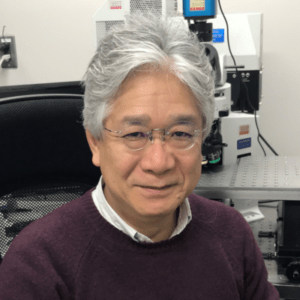
Fusao Kato
Participating in a debate on "Nociplastic pain: Nosology, pathophysiology and implications for clinical practice"
Current Position:
Emeritus Professor of the Jikei University; Specially appointed member of the Center for Neuroscience of Pain, Jikei University School of Medicine; Member of the Science Council of Japan
Education and Titles:
1989 Dr. Pharm. Sci. (PhD), The Graduate School of The University of Tokyo
1997 Dr. Med. Sci. (PhD), The Jikei University Graduate School of Medicine
Professional Engagement and Research History:
2014 Director, Center for Neuroscience of Pain, Jikei University School of Medicine
2013 Head, Department of Neuroscience, Jikei University School of Medicine
1995 – 1996 Professeur Associé (1e classe, 2e échelon), Institut de la Physiologie et de Chimie Biologique, Université Louis Pasteur, Strasbourg, France
1993 – 1995 Chercheur Etranger, L’Institut de Neurobiologie Alfred Fessard, Centre National de la Recherche Scientifique, Gif-sur-Yvette, France
1984 – 1993 Research Associate, Department of Pharmacology, The Jikei University School of Medicine
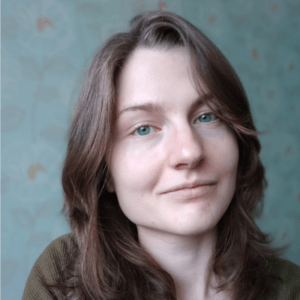
Keira Johnston
Dr. Keira Johnston is a Postdoctoral Associate in the Huckins Lab, Department of Psychiatry, Yale University School of Medicine. She received her BSc & MSc degrees from the University of Edinburgh in 2015 and 2016, and her PhD from the University of Glasgow in 2021. Dr. Johnston's research area of focus is the study of chronic pain as a complex disease trait."

Kim Kuypers
Presenting on "Psychedelics in chronic pain and mental health disorders"
Kim PC Kuypers is affiliated with Maastricht University's Faculty of Psychology and Neuroscience as an Associate Professor. Her research focuses on the neurobiology of flexible cognition, empathy, and well-being. She uses a psychopharmacological model to study the effects of psychedelics on these behaviors and their underlying biology, spanning short-term, medium-term, and long-term impacts. Next to that she also conducts surveys to understand motivations, experiences, and patterns of psychedelic use. In the future, Kim aims to focus on identifying biological markers of positive responses to psychedelics but also to understand the impact of nutritional interventions on mental wellbeing. Her ultimate goal is to contribute to personalized understandings of the relationships between psychedelics, nutrition, and mental well-being.

Makoto Tsuda
Presenting on "The role of spinal microglial activation in neuropathic pain (animal models)"
Makoto Tsuda, PhD is a Professor at the Graduate School of Pharmaceutical Sciences, Kyushu University (Fukuoka, Japan). He earned a PhD in the field of Pharmacology from the Hoshi University (Tokyo, Japan) in 1998. He worked as a post-doctoral fellowship in Dr. Kazuhide Inoue’s lab at the National Institute of Health Science (Tokyo, Japan) and in Prof. Michael Salter’s lab at the Hospital for Sick Children (Toronto, Canada). Dr. Tsuda’s academic career started in 2005 at the Kyushu University. His main research interest is to elucidate the cellular and molecular mechanisms of chronic pain and itch, with a focus on glia-neuron interactions in the nervous system, especially spinal cord and brain.

Marco Loggia
Presenting on "Role of neuroinflammation in chronic pain : insight from patient neuroimaging data (PET)"
Marco Loggia, PhD, is an Associate Professor of Radiology and Anesthesia at Harvard Medical School, a faculty member of the MGH/HST Athinoula A. Martinos Center for Biomedical Imaging and the Co-Director of the Center for Integrative Pain NeuroImaging (CiPNI), in Boston, MA. He received his Ph.D. in Neurological Sciences at McGill University under the supervision of Prof. M. Catherine Bushnell, and then held the position of Research Fellow at Brigham and Women’s Hospital, Massachusetts General Hospital and Harvard Medical School. Dr. Loggia’s main research questions focus on the neural and neuroinflammatory mechanisms of pain in humans, which he investigates using a variety of brain imaging and behavioral techniques, such as magnetic resonance imaging, positron emission tomography and quantitative sensory testing. He has published more than 90 peer-reviewed articles, and is a recipient of the 2013 Early Career Award and the 2016 Ulf Lindblom Young Investigator Award for Clinical Science, both from the International Association for the Study of Pain. He serves as Section Editor for PAIN.

Martin Schmelz
Presenting on "Anti-NGF monoclonal antibodies for the treatment of chronic pain" in a Joint Plenary Lecture with the European Headache Federation (EHF)
Martin Schmelz is director of the Dept. of Experimental Pain Research at the Medical Faculty Mannheim, Heidelberg University and as neurophysiologist focused on translational aspects of itch and pain. His focus in on sensitization of primary afferents recording from experimental animals, volunteers and patients spanning a period of 30 years (H-factor >70). Key research questions are mechanisms of ongoing activity and sensitization of nociceptors. He is a former president of the German IASP chapter and has been spokesperson for German collaborative research groups on pain and itch.

Melanie Noel
Presenting "Childhood adversity and pain: An intergenerational problem with structural solutions"
Melanie Noel, PhD, RPsych is a Professor of Clinical Psychology at the University of Calgary and a Full Member of the Alberta Children's Hospital Research Institute and the Hotchkiss Brain Institute. She directs the PEAK (Pain Education, Advocacy, Knowledge) Research Laboratory within the Vi Riddell Pain & Rehabilitation Centre at the Alberta Children’s Hospital in Canada.
Dr. Noel’s expertise is on children’s memories for pain and co-occurring mental health issues and pediatric chronic pain. She published guiding conceptual models of children’s pain memory development, co-occurring PTSD and chronic pain, and fear-avoidance (>200 peer-reviewed publications; H index = 44). In recognition of her contributions to advancing knowledge of the psychological aspects of children’s pain, Dr. Noel received early career awards from the International Association for the Study of Pain (IASP), the Canadian Pain Society, the American Pain Society, the Canadian Psychological Association, and the Society of Pediatric Psychology. She was named Avenue Magazine Calgary’s Top 40 Under 40 (Class of 2017), a Killam Emerging Research Leader (2020), and holds the inaugural the Killam Memorial Emerging Leader Chair (2021-2026). Recently, she was inducted into the Royal Society of Canada’s College of New Scholars, Artists, and Scientists.
Dr. Noel is passionate about partnering with people with lived experience to transform how we understand and treat people with pain.
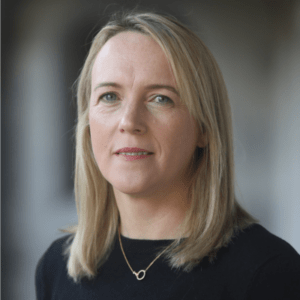
Michelle Roche
Presenting on "Translation and back-translation: animal models to understand the neurobiology of chronic pain and mood disorders"
Dr Roche is an Associate Professor in Physiology at the University of Galway, Ireland. She is Director of the Galway Neuroscience Centre and Co-Director of the Centre for Pain Research at the University of Galway. Dr Roche is the current President of the Irish Pain Society (2023-2025). Her research interests focuses on enhancing understanding of the neurobiology and pathophysiology underlying pain, mood disorders, autism and their interactions. She has a particular interest sex differences and the role of the neuro-immune, endocannabinoid and opioid systems. Her research has resulted in over 80 research manuscripts, reviews and book chapters and has been presented at over 200 conferences. Her research is supported by EU, national and industry funding. Dr Roche is former governing council member and communication officer for Neuroscience Ireland. She is former member of the Early Career Workshop Committee (2021-2023) and Scientific Advisory Committee (2017-2021) of the European College of Neuropsychopharmacology (ECNP) and an Editorial Board member of several international scientific journals.
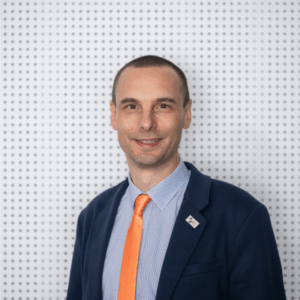
Patrice Forget
Presenting on "Pain management in people with substance use disorders"
Professor Patrice Forget is Clinical Chair in Anaesthesia at the University of Aberdeen (United Kingdom), and Honorary Consultant at the NHS Grampian. He is also a board member of the European Pain Federation EFIC and the Chair of the SIP - Societal Impact of Pain platform Working Group. Until 2019, he worked as Clinical Professor in Anaesthesia and Pain Medicine in Belgium, and as President of the Belgian Pain Society. He is involved in clinical research, focussed on mainly perioperative epidemiology, pain and clinical pharmacology. For the last ten years, as principal investigator and/or national coordinator, he authored more than 200 publications in peer-reviewed journals. He founded and chairs the Pain and Opioids after Surgery (PANDOS) ESAIC Research Group.
Conflict of interests: Deputy-Editor-in-Chief for the European Journal of Anaesthesiology, Senior/Academic/Associate Editor for the British Journal of Anaesthesia, BMC Anesthesiology and Anaesthesia, the Journal of Clinical Medicine, Critical Care and Pain Medicine, and expert for governments and scientific organisations, Cochrane and REDCap consortia member. Patrice Forget received speaker/advisory board honoraria from Grunenthal, GE Healthcare and Oncomfort

Simona Sacco
Presenting on "Monoclonal antibodies targeting the CGRP pathway for migraine prophylaxis" in a Joint Plenary Lecture with the European Headache Federation (EHF)
Simona Sacco is professor of Neurology at the University of L’Aquila in Italy and Director of the local Clinical Neurology and Stroke Unit. Dr. Sacco is author of more than 300 publications in the field of stroke and headache. She is the president of the European Stroke Organisation (ESO) and the Editor-in-Chief of Cephalalgia and Cephalalgia Reports.

Winfried Häuser
Participating in a debate on "Nociplastic pain: Nosology, pathophysiology and implications for clinical practice"
Winfried Häuser is adjunct Professor of Psychosomatic medicine at the Technical University of Munich, Germany. He is specialist of general internal medicine, psychosomatic medicine and pain medicine. He is consultant in the health care center pain medicine and mental health care Saarbrücken. His areas of research are psychosomatic aspects of gastrointestinal diseases, functional somatic syndromes (fibromyalgia and irritable bowel syndrome, chronic pelvic pain), harms and risks of opioids and cannabis-based medicines for chronic pain conditions and health care services research. He was the head of the EFIC task force for a position paper on cannabis-based medicines for chronic pain and on opioids for chronic noncancer pain. He has published more than 300 papers on chronic pain conditions (celiac disease; chronic inflammatory bowel diseases; fibromyalgia; irritable bowel syndrome) in peer-reviewed journals including systematic reviews on pharmacological, psychological, physical and complementary/alternative therapies for chronic pain conditions. His H-Index is 84.
Brain stimulation to treat chronic pain and psychiatric disorders
Non-invasive brain stimulation to treat chronic pain and psychiatric disorders: targets, (shared) mechanisms and clinical outcome
- Daniel Ciampi de Andrade (Denmark)
- Dirk Rasche (Germany)
Early-life experiences and chronic pain
Childhood adversity and pain: An intergenerational problem with structural solutions
- Mélanie Noel (Canada)
Nociplastic Pain Debate
Nociplastic pain: Nosology, pathophysiology and implications for clinical practice
- Winfried Häuser (Germany)
- Eva Kosek (Sweden)
- Fusao Kato (Japan)
Joint Plenary Lecture with the European Headache Federation (EHF)
Monoclonal antibodies targeting the CGRP pathway for migraine prophylaxis
- Simona Sacco (Italy)
Anti-NGF monoclonal antibodies for the treatment of chronic pain
- Martin Schmelz (Germany)
Phenotyping chronic pain in population studies, and measuring associations with mental health
Phenotyping chronic pain in population studies, and measuring associations with mental health
- Blair Smith (Scotland)
How side effects may improve analgesic treatment efficacy
How experiencing side effects may influence treatment expectations and treatment outcome
- Christian Buchel (Germany)
Pain management in people with substance use disorders
Pain management in people with substance use disorders
- Patrice Forget (Scotland)
Neuroimaging chronic pain within a biopsychosocial framework
Neuroimaging chronic pain within a biopsychosocial framework
- Etienne Vachon-Presseau (Canada)
Evidence-based analysis of healthy lifestyle interventions in chronic pain
Evidence-based analysis of healthy lifestyle interventions in chronic pain
- Amanda Williams (United Kingdom)
Psychedelics in chronic pain and mental health disorders
Psychedelics in chronic pain and mental health disorders
- Kim Kuypers (The Netherlands)
TRANSLATIONAL PAIN SCIENCE
Translation and back-translation: animal models to understand the neurobiological mechanisms and interactions between chronic pain and mood disorders
- Michelle Roche (Ireland)
Early Career Plenary Presentations
Causal relationships between depression and chronic pain characterised using UK general-population datasets with whole-genome genotyping
- Keira Johnston (USA)
Preclinical research on the neurobiology of depression and its comorbidity with chronic pain
- Léa Becker (USA)
The role of neuroinflammation and neurodegeneration in chronic pain
Role of neuroinflammation in chronic pain : insight from patient neuroimaging data (PET)
- Marco Loggia (USA)
The role of spinal microglial activation in neuropathic pain (animal models)
- Tsuda Makoto (Japan)





